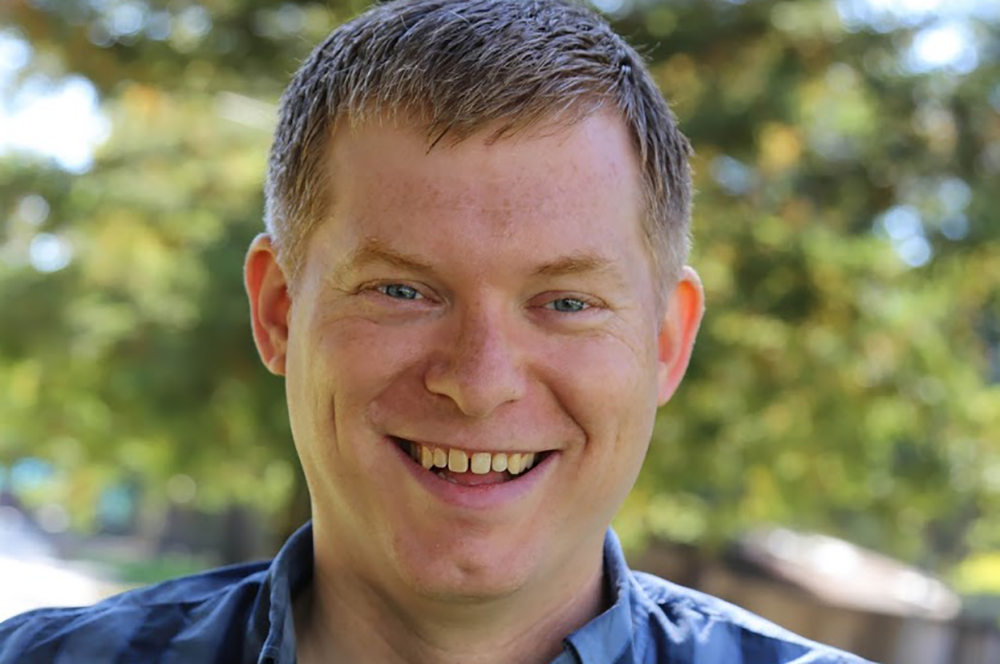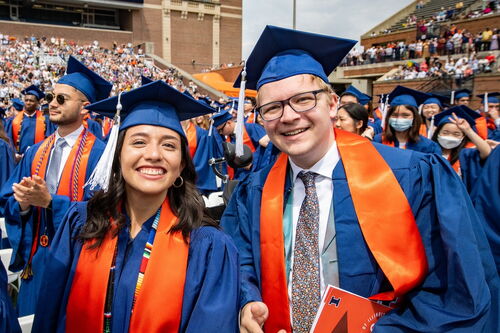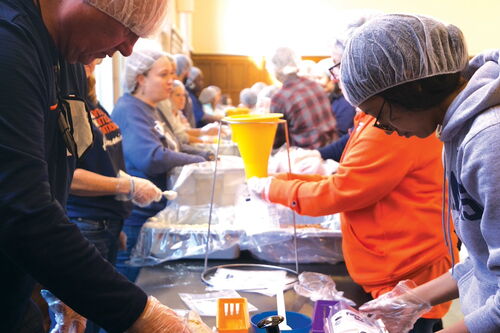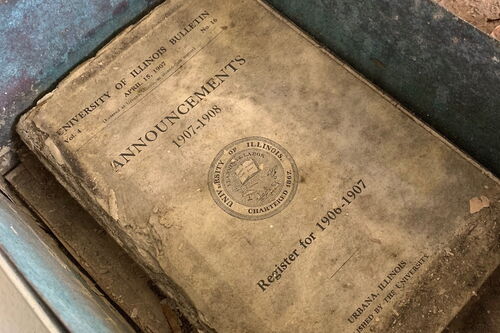The Googlers

What can you do with a degree in mathematics? Count a career at one of the world's most successful tech companies among the possibilities, as at least six College of LAS mathematics alumni are currently employed in everything from modeling advertising to building website tools at Google.
It’s hard to know exactly how many alumni in mathematics have worked for Google, but those who could be contacted by the College of LAS for this story report that they are a very good fit at the Silicon Valley tech giant.
For Tim Kilbourn (PhD, ’07, mathematics), software engineer at Google, it wasn’t originally in his plans to work in computer science. Kilbourn always imagined himself as a professor and recalled joking with a colleague, “Hey, if this math thing doesn’t work out, we’ll just go work for Google.”
Little did he know that Google is exactly where he’d be a few years later. Kilbourn works on systems-level programming at the company.
“Google doesn’t just say, ‘Okay we got computers, we’re done,’” Kilbourn said. “We are exploring what a computer can provide to society. Companies like Google aren’t just using computers, they’re pushing what a computer can do.”
Kilbourn said the way he learned to think while studying mathematics in graduate school was beneficial to developing a career in computer science.
“In particular as a (doctoral student), it’s not just the subject matter, but the discipline,” he said. “You can struggle through hard things that nobody knows how to do and find the answer, find the solution, and that’s the engineering that we do at Google.”
For Shiya Liu (MS, ’14; PhD, ’17, mathematics), a software engineer at Google, there are many joys that come with working with the company, some that might be unexpected.

“The company offers growth opportunities, not only for work skills, but also for areas such as piano, dancing, even aviation. We have team events and holiday events. People here are ‘Googley,’ which is a generic term to (describe) qualities we'd like to see in ourselves and other Googlers, including bring creativity, sincerity, and passion to work,” said Liu.
Radoslav Kirov (MS, ’08; PhD, ’10, mathematics), a software engineer at Google, said that working for Google has a lot of upsides aside from the work itself.
“There’s a lot of fun perks including free food, onsite massages, onsite haircut,” Kirov said. “The Mountain View campus has slides, a skateboard ramp, arcade rooms, and a bowling alley. We work in open offices (no cubicles) and have flexible work hours.”
When Liu isn’t utilizing Google’s fun perks, she spends her workdays creating modeling software for advertisers, a surprisingly important part of Google’s business model.
“It’s how Google makes money,” Liu said.
Liu said sometimes simple advertising models might not work well, so more complex mathematics come to play in order to make the model more accurate.
“Advertisers have some goals, view these models, and try to achieve their goals through these models,” she said. “It involves modeling, but software is used to make that happen.”
While Liu said Google is something of a dream job, she remembers her time at Illinois fondly.
“My adviser Richard Laugesen was director of graduate studies in mathematics at the time,” Liu said, of the professor. “He was supportive of not only my research, but in my life. He was a good adviser and a good friend.”
While mathematics alumni don’t always go into a career involving computer science, Liu is thankful for Laugesen because of their discussions that led her to make the decision to work in the industry.
“Illinois does have a very good and very strong program for preparing a lot of good, talented people. I’ve found a lot of Illinois people at Google who do an excellent job here,” Liu said. “The university has a really good reputation within the country and that helps us a lot.”
While Kirov was at the university, he considered computer science to be a hobby and mathematics would be his career. Now, after taking a job at Google, mathematics still remains a crucial part of his everyday life.
At Google, Kirov works on front-ending infrastructure. In other words, he builds the tools others use to build websites. A modern web application like Gmail is an incredibly complicated piece of software, Kirov said, which requires a deep understanding of numbers.
“Just the bits that run in your browser can add up to million lines of JavaScript code, written by hundreds of engineers. I work on the tools that those engineers use in their daily work,” Kirov said. “There are problems to be solved and the tools we use to solve them are all different. In some ways it does use mathematics, so I don’t feel like I’m not too far from what I’ve studied.”
Some of the skills from graduate school other than mathematics also transferred to his career. While on campus, Kirov served as a teaching assistant for six years. He now spends about 20 percent of his time at the company teaching internal courses. And while he no longer grades homework and exams, he enjoys it all the same.
“I like that the common setup in mathematics is research and teaching,” Kirov said. “I’ve always liked teaching and now I have the opportunity to do it again.”
Kirov said that sometimes he has coffee with Patrick Reynolds (PhD, ‘11, mathematics), another software engineer at Google whom Kirov knew while at Illinois. Jesse Beder (MS, ’07; PhD, ’12, mathematics), is also a software engineer at Google.
“If I had to do it again, I would pursue my mathematics Ph.D. again,” Kirov said. “Having this degree gave me personal growth and opportunities to learn and go really deep into mathematics. Even if I didn’t choose it as a career path, it’s a personal knowledge path that I very much enjoy. It will stay with me the rest of my life.”








